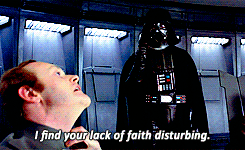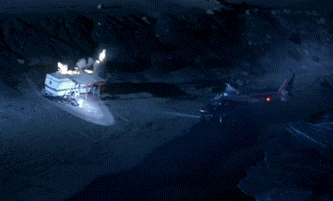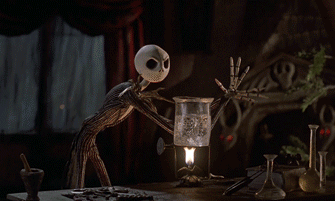AnHeC (I'm too fucking busy and vice versa)
Hi! My name is Anna, "You'd really like me if you got to know me. I've known me for years and I love me."
The praise of the mundane

I don’t think I can be friends with people who actively dislike The Hobbit. I really don’t. Just like with the ones dissing Terry Pratchet. Or BBC Sherlock. Those cases seem to scream ‘irreconcilable character differences’ (and we all know where does that lead).

I find that what draws our attention at a given 'read' of a book is a cheap form of psychoanalyses :P Tell me what you've gathered from reading The Hobbit and... I'll totally pull a hasty judgement on whether you deserve my home-made, kick-ass cake. Or just a store-bought packet of biscuits (worst case scenario - I give them to you with a grump - oh yeah! It's that serious.) 'nuf said.
The Hobbit truly is a masterpiece. In many ways it is more impressive than the epic tale of Lord of the Rings. The simpler, shorter narrative seems to be much more coherent and yet remains as rich and deep in meaning (very intricate, every detail matters, layers upon layers of meaning). I'll try to (disjointedly) mention a few of those now.

some SPOILERS AHEAD!!! (DUH)
Sure, if one reads The Hobbit as an adventure story about defeating the dragon and saving the day it may seem somewhat underwhelming. However, the thing is, it’s not a story about killing the monster and getting the treasure. The title itself wonderfully captures this (and, like always always with Tolkien, it's not accidental. It carries meaning). It’s ‘There and back again’ not ‘The Demise of Smaug’ or ‘To the Lonely Mountain’. After all, we need to remember that the dwarves never even face Smaug (whose death is absolutely not the culminating point of the narrative, BTW). Sure, it matters, but it’s not the point. The story truly concludes when Bilbo comes back home. His return and how he views it is of much greater concern then the whole dragon business. It’s one of the indicators of his growth as a person through the whole journey.
It’s going to be a long review, so just in case you’re not up for a long read I’ll shortly present what I’ve always found to be the most amazing thing about this book (read just the first point).
THE MUNDANE
The most remarkable thing about this book has always been how it steers us towards appreciation of humble, everyday life. I like books that make me appreciate the normalcy I have. It’s a healthy attitude (considering I’m highly unlikely to become a successful assassin (risky) or, even more so, a wizard (slightly impossible)). Usually those would be books set in romanticized reality and focused on trivia of life (like Anne of Green Gables). It’s quite ironic that one of the best books to give us that perspective not only isn’t realistic; it’s full of magic, wizards, contains a whole slew of mythical creatures and has truly epic powers at play. Extreme end of the spectrum.
The ‘Back Again’ with its whistling kettle, eggs & bacon, comfortable armchair and lazy afternoons with a pipe is a constant point of reference for our hero. First, it was all he knew; then, as terrified he wished to just magically go back, it was a deeply missed escape; later it grew into a source of strength, something worth getting through whatever you have to face so you can come back to it. Something to ground you in a reality regardless of the chaos around.
The change of perspective is gradual. However, we don’t go from hating the dangers of the road towards the love of safety. Rather, we develop respect and appreciation for both aspects.
Furthermore, despite being a part of ‘big events’ Bilbo remains humble, more than that, he grows more humble as he learns more about the world. Pride and greed, cardinal sins which almost led to a disaster (war between good creatures of the world) are things he overcomes. Like with most things in this book, I could write an essay just on those, but there’s no time and space. The important thing to note is: at the end, when Gandalf confronts Bilbo about the role fate played and suggests to the hobbit he was just a tool, a part of bigger things, Bilbo is happy with it. He’s not upset about not being the centre of the universe. His answer is very practical and down to earth. And this gives him peace of mind.
Interestingly, Bilbo is not the centre of the events. He’s no great hero who saved the day (unlike, let’s say, Harry Potter). His contribution is significant. Without him things would have gone quite differently, but, just like in real life, it’s not ‘one person does all’. Actions of all characters, both good and bad, are what leads us towards the final outcome. The fact we can really feel that is amazing.

There, now on to a few more bits. *sigh* I'm really bad at this. I feel like I'm just standing in front of you waving my arms and trying to get you to just read my mind already! See what I see! This is sad. *sigh again*

TWO NATURES – PERSONALITY GROWTH (it’s all about balance, mate)
Bilbo has two distinct, seemingly contradictory, sides of character (coming from two different parents). A homey, boring one and an adventurous one which at the beginning remains completely dormant. It awakens gradually and, at the end, balances Bilbo’s personality out (it’s truly masterful. The series of subtle events and changes they signify can be traced if one pays attention.) Only at the very end does our protagonist gain a fuller view of reality. The way he lives and feels about things around him changed profoundly.
One example would be his very sense of self. At the beginning Bilbo is largely dependent on opinion of others. It’s pointed out he’s a very respectable hobbit (and he’s proud of it). And yet he gets upset when dwarves doubt his skills as an adventurer. He wants them to feel differently. During the journey this desire to impress others pushes him towards (quite often risky and unnecessary, even disastrous) actions. At the very end of the book we learn that his neighbours didn’t respect him anymore; he’s thought to be weird. He sings, writes poetry, meets with elves and receives strange guests, but what others think doesn’t bother him anymore. Along the way he learned more and more to disassociate himself from the opinion of others and not allow it to dictate his actions (useful in making huge decisions when dealing with war leaders and monsters, but also comes in handy in everyday life).
Additionally, at the beginning Bilbo was passive. He gradually becomes more engaged and the build up is truly wonderful. He goes from things sort of happening to him, being simply terrified, through taking actions when given no choice (mortal danger), through standing up to said perils in a more active way until he finally, willingly, knowingly makes a choice to go into a situation.

He grows in so many ways in such a beautifully paced manner! It's remarkable. To write like this... (*sigh* I told you I'm bad at it... It's so haaaaard to write something positive... .... .. ... . Love me!)

THE GOOD
One of the amazing aspects of the world introduced by Tolkien is the huge variety of good creatures we’re presented with. It’s worth noting, not all good is the same and absolutely every good has some faults. Hobbits are unable to view the world as a bigger place; they’re utterly focused on their own small reality, unable to grasp things which are not part of their experience. Eagles are cruel and ruthless; they help the main troupe of characters, but only because it accidentally happened to fit their plans. They have little care for others and their fate and simply want to cause trouble for their hated enemies. Those are wild creatures who live by the most merciless laws of nature. Beorn helps the dwarves, but not out of compassion. He’s entire life is shaped by the great violent hate he harbours for the goblins. He’s bloodthirsty. The elves of the forest are proud and quick to jump to (often wrong) conclusions. Thanduril wants to have more jewels and silver, but not out of simple appreciation of their beauty, but rather for the sake of gaining higher status (which he’s confident he deserves). Dwarves are greedy and think mostly of themselves. They jumped into the whole adventure without thinking it through or having any real plan. Humans, well, their emotions easily change; they go between groundless excitement to absolute terror and despair, always failing to accurately judge the situation. Moreover, Bard has his shortcomings, too; he’s not the perfect wise leader and after the death of Smaug makes a potentially perilous decision to begin the siege of the mountain (note, the people have no food or shelter. They are unlikely to survive it). Even the high elves of Rivendell are not the perfect, wise creatures we know from the movies; in the Hobbit they act like mischievous puppies. They love teasing others, making fun of them (yanking their chain) and have very little concern for small matters of this world (like some dragon killing people). From their perspective it’s all funny and trivial.
Note, none of those groups are evil, but rather complex in their character and behaviour. They all show both their good and bad sides in this story, but I won’t say anything more about that.

LUCK AND HIGHER POWER
Tolkien was religious. Luck and influence of some higher power are one of the important themes in the book. Every single event and its solution has an element of luck involved (starting with Bilbo finding the ring to the ‘eagle intervention’ at the end). The important thing; however, is that luck does not provide a solution on its own. It’s not a magical end of a given problem. Rather, Bilbo has to rise to the occasion when an opportunity presents itself.
Luck doesn’t detract from what Bilbo does. But for a happy ending both luck and initiative of a character are required.
Also, unhappy accidents tend to have incredibly important outcome (bring salvation from unforeseen dangers). Consequences are difficult to predict and all the unfortunate events end up being extremely good for our protagonists. If they stuck to their original plans things would not have worked out. We learn about avoided dangers throughout the book. The point is hammered in over and over again. This reflects in many ways great complexity of life, the incredible way things often work out and how people see them once they gain a different perspective.
Today, some people disassociate themselves from any notion of higher power and grand plans being in play; however, Tolkien was a religious man. A man, who lived through war. I’m pretty sure his life was full of things which amazingly worked out. Yes, I know we build those stories ourselves in our heads. Yes. But that’s how our brains work. Let’s not fight over that, shall we?

Even if you’re not religious, you can just marvel at the amazing (and well deserved) role chance plays in this book. Our lives depend more on luck and coincidences than many care to admit. It’s nice to see those things being an integral part of the story.
One last interesting thing to mention here – Rotter’s Locus of Control theory. To put it simply, belief in some outside force affecting our lives makes the existence significantly less stressful. The more you think every single event and outcome are results of your actions, the more importance you ascribe to your humble person, the more misery you have. Just a playful thought.

FINAL THOUGHTS
Tolkien wrote his book (just like C.S. Lewis) inspired by the experience of war, trying to make peace with it (and the realities of this world in general). He’s personal believes and experiences permeate the book. The book, which is truly masterfully constructed and magical. Funny how a book so reach in meaning was published for... children! And written in a way no one at the time could take as serious writing. Fairies? Dwarves? Really?! Get a job Tolkien! Get. a. job.
The use of humour lightening the tones is brilliant and makes the story more suitable for children. Unfortunately, quite many adults seem to get blinded by it and can neither appreciate the gracious combination of darker tones with laughter, nor are they able to look beyond it and analyse the story. Story, which grows darker until the tone becomes solemn at the least expected time. When the dragon is killed instead of typical celebration and glossing over the damages and loss of life we get a very serious and dark look at the aftermath of the conflict. Death and loss of human life are treated with attention rarely given to them in children stories.
Use of language is brilliant. Every title of every chapter is precisely just right. The masterful use of words is both delightful and impressive. Descriptions, alliterations, poems... There isn’t a sentence which doesn’t bring something significant into the story.

The Hobbit remains one of the best books I’ve ever read. You can literally (and I'm using this word responsibly) open it on any page and start serious literary analyses – there’s enough material to go on for hours. It’s always a pleasure to read and re-read each time finding something new in the story.
If you’ve survived this 'review' in its entirety... congratulations! You can come by my house and I’ll prepare some tea (what an honour, I know, I'm a benevolent host). Did I convey my point a bit at least? Did I? *sigh* just go ahead and read some analyses of The Hobbit on the internet. There are people much smarter than me, and much better at expressing their thoughts, too. I just hope I gave you a pause, at least.





 12
12
 8
8